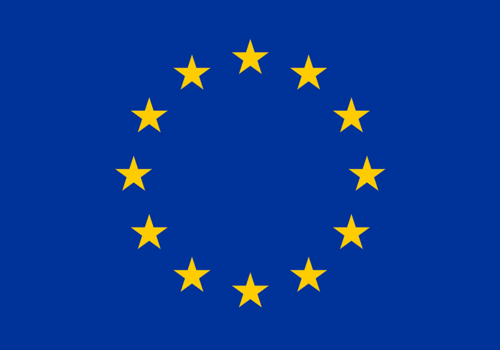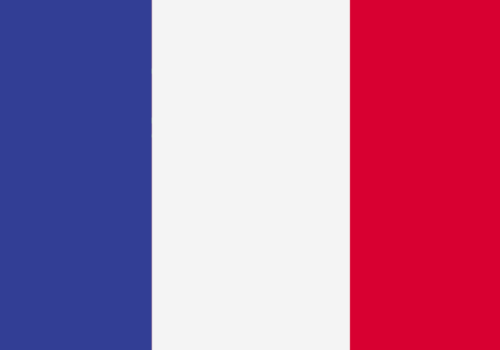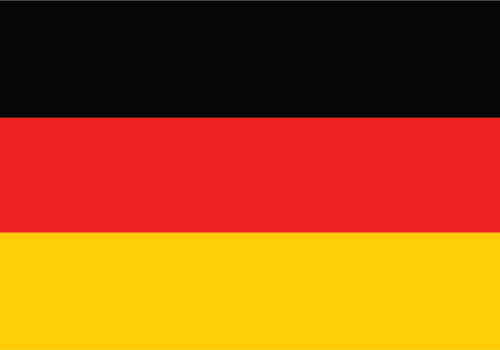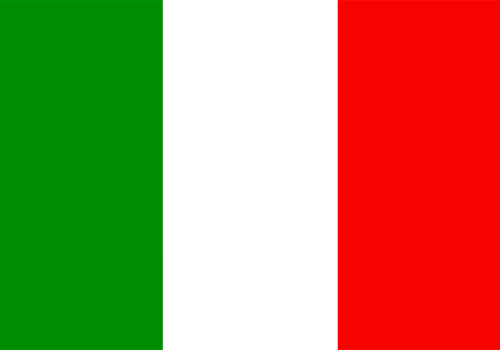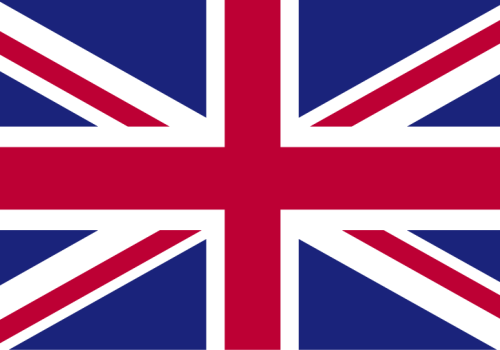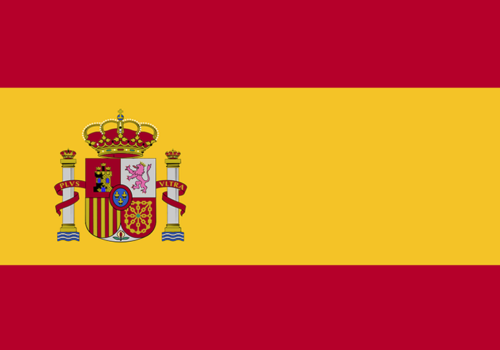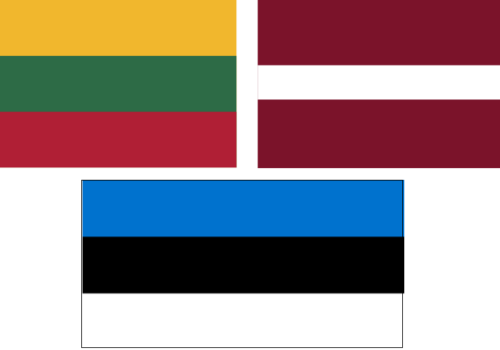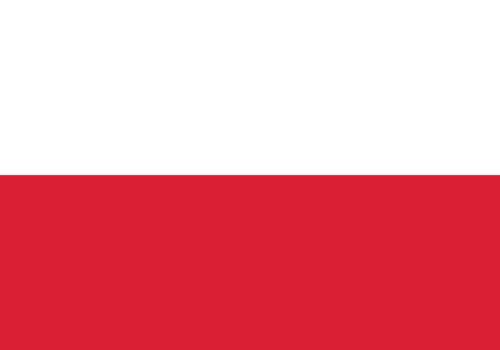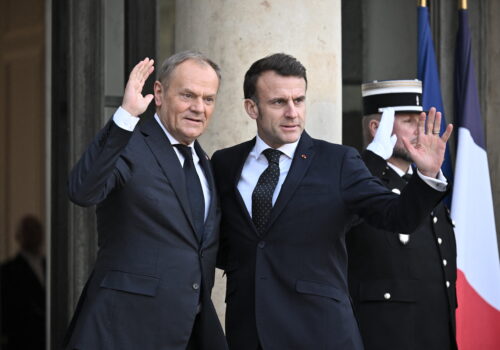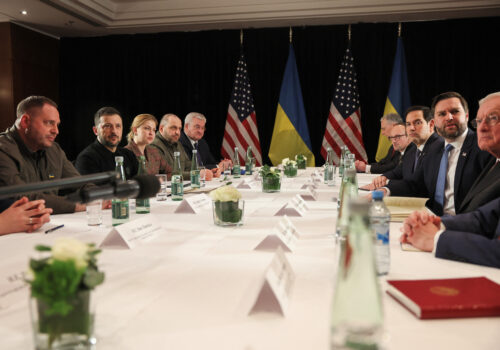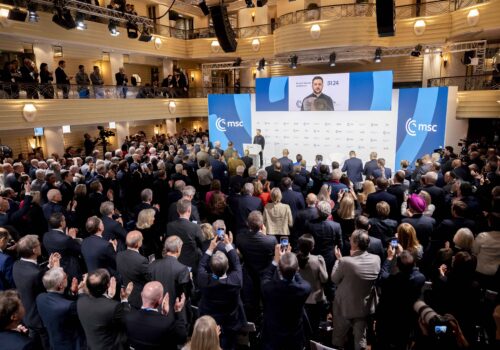What Europeans think of Trump’s approach to Ukraine (and what they might do next)
It’s a wake-up call. Over the past two weeks, Europeans have awoken to the fact that the United States, which for decades has been the main guarantor of security on the continent, now wants them to take the lead on Ukraine’s defense. This message has come in waves from US Secretary of Defense Pete Hegseth, Vice President JD Vance, and President Donald Trump.
One response to a wake-up call, of course, is to wake up and get to work. So, what might that look like in practice for specific countries and Europe as a whole? Below, Atlantic Council experts share their insights on how Europeans are responding to the Trump administration’s eye-opening jolt and what could follow.
European Union
To say the EU bubble reacted negatively toward the US position on Ukraine and Russia would be the understatement of the year.
After news broke last week about the phone call between Trump and Russian President Vladimir Putin, the EU’s chief diplomat, Kaja Kallas, labeled recent US moves “appeasement,” and condemned Europe’s (and Ukraine’s) exclusion from any negotiations with Russia. In Brussels, a week of comments from the administration about the future US military commitment to Europe and, in particular, the European Union’s supposed anti-democratic tilt have left a deep mark. Can Washington really mean these things—about Ukraine, about Europe? How can Trump undercut joint positions and his own leverage vis-à-vis Putin? Is the United States still an ally? Many in Brussels understand some nuances in the US position, but generally, the more productive comments from administration officials about the need for consultations with allies have been completely overshadowed. Now, with Trump blaming Ukraine for the war, Brussels’s shock and dismay are cemented.
These feelings are fair, but there shouldn’t be any surprise. Europe had months to prepare for expected disruption from the Trump administration. And it certainly should brace for more.
Most importantly, though, what Europe needs to do hasn’t changed: Europe must strengthen its own leverage with Putin and Trump alike. That means taking the lead as the guarantors of Ukraine’s security in the future and standing up a credible offer—including with European forces in Ukraine—to enforce a durable solution in Ukraine.
The EU’s role in this effort is difficult. Decisions made at the EU level on foreign and security policy are made with unanimity. That will be a challenge, especially when quick action is required, while countries like Hungary under Trump ally Viktor Orbán play spoiler or the regular consultative process leads to wasted time. Critical decisions about troop deployments or military action will also come from individual member states, not the EU.
But the EU has a role to play. It can push members to provide more assistance, especially military assistance, to Ukraine. It can also embrace the financial tools at its disposal to spur greater production, military spending, and defense-industrial cooperation. These efforts are already in the works, but must be finalized quickly. And these moves themselves are unlikely to convince Washington of Europe’s agency.
It will take big-ticket items to get noticed. The EU can finally move on seizing Russia’s frozen assets, for example. It can repackage efforts about Ukraine’s EU membership and gradual integration. EU leaders should also send an important public signal that they support member state action in and for Ukraine, and will do everything in their power to support willing members’ efforts. The EU as we know it was forged in crisis and has taken big decisions in times of need. It’s that time again.
—James Batchik is an associate director of the Atlantic Council’s Europe Center.
France
Trump’s negotiation posture with Russia is failing to respect French President Emmanuel Macron and other European leaders’ view of Russia as an “existential threat.” Macron, among other Europeans, has made it clear that while Europe supports peace, it will not endorse an unjust and fragile deal between Russia and the United States that would undermine Ukrainian and European security—especially one that would not have Ukraine, Europe, Turkey, or Canada at the negotiating table.
This is a moment of reckoning for France, which can now claim that it has won the argument of European “strategic autonomy.” This vision, that “Europe could die” should it not pursue stronger ambitions for its defense and economic and industrial independence, now faces a reality check. The view from Paris now is that France, whatever the United States does, will continue to consider Russia as an existential threat, given its military rearmament and long-standing strategic interests in weakening Europe. Macron, who will have to overcome budgetary constraints and a leadership crisis, has already turned to his domestic audience warning of coming societal and economic “sacrifices.”
Since February 2024, Macron has taken the initiative to provoke discussions aimed at supporting European leadership to secure Ukraine’s long-term future. Given the United States’ recently transmitted questionnaire asking European nations to provide detailed proposals on the weaponry, guarantor forces, and security arrangements they could provide Ukraine, a coordinated European response is more necessary than ever. The informal February 17-19 meetings contribute to the effort to discuss new options among Europeans and like-minded partners, without the United States. One of them could include France and the United Kingdom sending military experts and limited amounts of troops in “non-conflict zones” inside Ukraine.
—Léonie Allard is a visiting fellow at the Atlantic Council’s Europe Center, previously serving at the French Ministry of Armed Forces.
Germany
Trump’s U-turn in the United States’ Ukraine posture and the start of negotiations with Russia have put Berlin’s political leadership in a strategic bind. It comes as Germany enters the home stretch of a strange national election campaign that has almost entirely failed to capture the enormity and urgency of the challenges facing the country at home and abroad. Even more strangely, with election day rapidly approaching on February 23, all of the leading candidates for the chancellorship have so far avoided taking a clear stance on the tough choices Trump’s moves present for Europe. While London and Paris have started to discuss options for a European force to secure a future peace deal, Berlin seems intent on pretending that there are no such hard choices to make. At least not until the day after the election.
Not just incumbent Chancellor Olaf Scholz but also his most likely successor, the conservative leader Friedrich Merz, have rejected the idea that a debate about European troops is to be had at this point. Vice Chancellor Robert Habeck, the Spitzenkandidat (or lead candidate) of the Greens, which have been among the most hawkish in confronting Russia’s illegal war, has called German participation in such a force a question that can’t be answered in the abstract. German political elites have convinced themselves that questions of war, troop deployments, a return to conscription, and economic sacrifices to support a future mission could invite significant controversy and punishment at the ballot box. No one wants to trip themselves up.. As per usual on foreign and defense policy issues, German voters seem to hold more realistic and robust instincts: a poll from the end of last week found that more respondents favored German participation in a peace enforcement mission (49 percent) than opposed it (44 percent). Surely, with some leadership from decisionmakers explaining why it is in Germany’s national interest to participate, that response could be shaped into even more solid support.
Uniquely for Germany, however, Trump’s US policy shifts and rapprochement with Russia poses a fundamental challenge to pillars of Berlin’s strategic and security posture. Lacking both the nuclear deterrent and the strategic culture of France or the United Kingdom, Germany is more dependent on the United States than its European peers. What’s more, Scholz doubled down on Berlin’s reliance on Washington during the last four years under his “friend” President Joe Biden, often at the expense of Franco-German or European alternatives or back-up options. Meanwhile, his Zeitenwende effort to use one hundred billion euros to make up for decades of underinvestment in Germany’s armed forces has stalled and left Berlin without the options Warsaw’s conventional scale-up will offer Polish policymakers. Government and opposition parties alike know that the Bundeswehr remains in a sorry state of readiness, which will not allow the next German leadership to make any sizeable contributions to a European force, even if it mustered the political will to do so.
Germany has emerged as Europe’s largest military and financial supporter of Ukraine. In the absence of continued US assistance, Berlin will have to maintain, if not step up, that support to strengthen Ukrainian deterrence, not least in order to buy itself more time for inevitable rearmament. The next German chancellor will have the unenviable but likely unavoidable responsibility of explaining to the German public why and how it will have to fund massive military modernization for its own security. After the Russia shock to German energy supply in February 2022 and the China shock to its automobile sector of 2024, it seems that 2025 will bring an American shock to its security and strategic reliance on the United States.
—Jörn Fleck is the senior director of the Atlantic Council’s Europe Center.
Italy
Rome has been less taken aback than other European capitals by the US-Russia peace talks in Riyadh. This is not only because Italy has already endured painful diplomatic exclusions, but also because it is arguably the most disillusioned actor regarding both its own global standing and that of Europe. Having long accepted its role as a minor US ally, Italy’s pragmatic approach was reflected in Prime Minister Giorgia Meloni’s skepticism about the recent Paris meeting on Ukraine. This was even clearer in her reaction to Macron’s suggestion of deploying European troops to Ukraine should a peace deal be reached, which Meloni on Monday called “the most complex and least effective way” of maintaining a peace settlement.
Militarily, if European troops were deployed in Ukraine, Italy—the largest contributor to EU operations and the second-largest to NATO—would face challenges in participating. As the Italian Army’s chief of staff recently stressed, Rome’s armed forces are already overstretched. Any deployment would likely require Italy to scale back commitments elsewhere. Additionally, some Eastern European states that meet NATO’s Defense Investment Pledge are unwilling to send troops to Ukraine, as their military budgets are strictly allocated to national defense rather than collective operations. Their reluctance would further reinforce Italy’s position, particularly if NATO raises its mandated defense spending minimum to 3 percent of gross domestic product (GDP), which would expand the number of noncompliant states and, in turn, lessen the political pressure on Italy.
Despite being thinly stretched in personnel, Italy remains a crucial actor within NATO’s Air Policing framework, currently leading its seventh Baltic mission, as well as deploying its SAMP/T long-range air defense systems (also supplied to Ukraine). The Italian military’s engagement also includes Romania, which borders Ukraine, both via airspace patrols and rapid large-scale troop deployments. Trailing only behind France among European allies, Italy offers essential airlift capabilities including a sixteen-unit fleet of US-made C-130s and Italian-equivalent C-27s. As all roads lead to Rome, ahead of the 2025 Ukraine Recovery Conference, its patronage for Odesa’s reconstruction, and Meloni’s ties with Washington, securing Ukraine’s airspace could be the next most viable contribution to a European security force.
While no one in the Italian government disputes that Europe has the resources and personnel to send troops, serious doubts remain about its deterrence capability. European armies have struggled in the kind of conventional and high-intensity warfare that defines the Russia-Ukraine conflict. As a result, Rome is urging European allies and Canada to pull their weight in continental security while working to bring the Trump administration back into European affairs.
—Gabriele Natalizia is a visiting fellow with the Atlantic Council’s Europe Center. He is also an associate professor of international relations at the Department of Political Science at Sapienza University of Rome and director of the Centro Studi Geopolitica.
—Jacopo Pastorelli is a program assistant in the Atlantic Council’s Europe Center.
United Kingdom
Like most European countries, the United Kingdom is still reeling from the performances of Hegseth and Vance at the NATO Defence Ministerial and Munich Security Conference last week. Those speeches followed Trump’s threats to impose high tariffs on all imports to the United States; his threats to assimilate Greenland, the Panama Canal, Gaza, and Canada within the United States; and his proposal to give Washington the rights to half of Ukraine’s mineral resources. The United Kingdom worries that US actions amount to replacing the rules-based international order with the concept of might is right, in which, to quote Thucidydes, “the strong do what they can and the weak suffer what they must.” There was private indignation when Vance told the Munich Security Conference that European countries’ backtracking on freedom of speech was a greater threat to their security than any posed by Russia or China. This was especially exasperating to UK officials given the Trump administration’s threats against journalists, judges, politicians, and generals who do not toe the line.
These concerns are compounded by the United States’ decision to open negotiations with Russia on the future of Ukraine without involving either Ukraine or European governments, having already declared that Ukraine will have to surrender territory to its invader, and now falsely accusing Ukraine of having started the war.
The UK prime minister is hoping to use his relationship with Trump, and imminent visit to Washington, to build bridges between Europe and the United States—something that no one would have considered necessary even six months ago. To strengthen his hand, Starmer has said the United Kingdom will be ready to contribute peacekeeping troops, should there be a postwar settlement to enforce. But it is emphatic that there can be no agreement on the future of Ukraine without the consent of Ukraine.
—Peter Westmacott is a distinguished ambassadorial fellow with the Atlantic Council’s Europe Center and a former British ambassador to the United States.
Spain
Spanish Prime Minister Pedro Sánchez and his government will try to put up a good face as Europe navigates its responses to the negotiations about the fate of Ukraine and any potential European role as peacekeepers. Publicly, Sánchez will continue to stress unwavering support for Ukraine, highlight the two countries’ bilateral defense agreement, and relentlessly press that security for Ukraine is security for Europe. Sánchez will showcase his image as one of the EU’s most prominent voices, relishing being at the table during this week’s French-led European leaders’ meeting while calling for the EU to do more and spend more.
Behind the scenes, the Spanish government is accepting the fact that developments about Ukraine over the past week may accelerate difficult choices for Spain and further expose Sánchez to existing internal and external vulnerabilities. It’s becoming harder to obfuscate the country’s low defense spending, and calls for raising the military spending bar to 5 percent of GDP will only further shine a spotlight on existing deficiencies. (At just 1.28 percent of GDP in 2024, Spain had the lowest military spending figure in the Alliance aside from Iceland, which has no military.) Opposition leader Alberto Núñez Feijóo of the Popular Party has ramped up his attacks on Sánchez and his Socialist Party, accusing Spain of not being a reliable member of either NATO or the EU and laying the responsibility on Sánchez. Feijóo believes this weakness in turn makes Spain a weak partner with the United States, a relationship that Madrid would prefer to spin optimistically.
Spain believes that consensus about any potential peacekeeping force in Ukraine is a long way off, with Sánchez calling these discussions “premature.” Should that consensus be found and a viable operational framework built, Spain may be convinced to participate to uphold its image as a security provider. But this is not something Madrid finds realistic at this moment in the crisis.
—Andrew Bernard is a retired US Air Force Colonel and a nonresident senior fellow in the Atlantic Council’s Europe Center.
The Baltic states
The Baltic states of Lithuania, Latvia, and Estonia met the United States’ call for Europe to take the lead on Ukraine’s defense with a nuanced position. This involved a call for immediate European action on defense and reaffirming the Baltics’ persisting deep strategic ties with the United States. According to the Lithuanian minister for foreign affairs, Kęstutis Budrys, a strategic shift in how Ukraine’s defense is approached is urgently needed: the ultimate goal is to develop a framework in which Ukraine’s defense merges into the broader arrangement of Europe’s defense. Therefore, the Baltic states are calling for accelerating Ukraine’s accession to the EU and dramatically increasing European defense spending (the Baltic countries are among NATO’s top performers in this area and are each willing to spend 5 percent of GDP on defense in the coming years). They also advocate relaxing EU spending rules for member states hitting budget deficits above 3 percent of GDP because of increased defense spending. Finally, they support boosting Ukraine’s defense industry as part of a European rearmament strategy.
With these measures in place, the Baltic capitals see the United States remaining a firm backstop for Europe’s—including Ukraine’s—defense. The Baltic states are eager to work on these issues through the EU and NATO and have signaled their readiness to join specific coalitions of the willing in order to push forward with concrete measures. Lithuania, Latvia, and Estonia, together with their Nordic partners and Poland, should take the lead in these areas and start creating facts on the ground that could eventually move the rest of Europe forward on defense.
—Justina Budginaite-Froehly, PhD, is a nonresident senior fellow with the Atlantic Council’s Europe Center and Transatlantic Security Initiative in the Scowcroft Center for Strategy and Security.
Poland
Poles have met the recent language from US leaders concerning Ukraine and Russia with a mixture of confusion and shock. Initially, National Security Advisor Michael Waltz and Special Envoy Keith Kellogg gave reassurances that Europe’s perspective would not be ignored in any talks on Ukraine, which was received positively. Later, during Secretary of Defense Pete Hegseth’s visit to Warsaw last week, there may have been some dismay over the poor choice of words regarding Ukraine’s territory and possible NATO membership, which was combined with an absence of any apparent demands on Russia. But overall, the visit went well, and the Poles believed there was a path forward.
Now, after the security conference in Munich (the irony is not lost on anyone here) Polish leaders cannot understand why Trump is blowing up all the goodwill and constructive work of his advisers with a series of attacks on Ukraine and Ukrainian President Volodymyr Zelenskyy. The Poles are starting to question the point of meeting with Trump’s representatives when it’s not clear that they are presenting US policy or have the president’s ear. Not even the right-wing Konfederacja party appears particularly thrilled by the language on Russia coming from the US administration, which many of its party members generally view favorably. The Polish government thinks that they are in a tough spot, as they fear Trump might use the ten thousand US troops in Poland as leverage if Warsaw pushes back too hard. A threat to withdraw US soldiers delivered before the Polish presidential election in mid-May, for example, might seriously harm Prime Minister Donald Tusk’s Civic Coalition candidate Rafał Trzaskowski.
On the bright side, Poland is probably one of the best-equipped countries in Europe to handle this situation. The Poles know they have goodwill in parts of Trumpworld as the “model European,” with the country spending almost 5 percent of its gross domestic product on defense and having cut off Russian gas imports in favor of US liquefied natural gas. President Andrzej Duda has a close relationship with Trump going back to his first term. Foreign Minister Radosław Sikorski can speak to the American right. Tusk knows European politics very well and Polish outreach to like-minded nations, such as the United Kingdom and the Nordic-Baltic states, has been in the works for some time. It’s not likely that Poland will offer to send troops to Ukraine, at least not before the presidential election. Even after, Tusk is right that the issue is controversial in Ukraine for historical reasons. A way around this might be for Poland to offer to free up British troops in Estonia, which in turn could be made available for Ukraine. What’s certain is that trust in the United States, a country many Poles love, has taken a beating.
—Aaron Korewa is the director of the Atlantic Council’s Warsaw Office which is part of the Europe Center.
Further reading
Tue, Feb 18, 2025
Transatlantic alliance enters most challenging period since Suez crisis
UkraineAlert By Edward Verona
The conclusion that many observers are drawing from the 2025 Munich Security Conference is that the United States, at least during the Trump presidency, is no longer willing to guarantee European security, writes Edward Verona.
Mon, Feb 17, 2025
Dispatch from Munich: Sorting signal from noise in the Trump team’s Ukraine moves
New Atlanticist By John E. Herbst
Despite the Trump team’s twists and turns regarding the war in recent weeks, the contours of a plan that could produce a durable peace remain clear.
Sun, Feb 16, 2025
What Munich means for Ukraine peace talks
Fast Thinking By
Atlantic Council experts who were on site at the Munich Security Conference break down the Trump team's approach to negotiations on the war in Ukraine and the European reaction.
Image: Daily newspapers with covers, dedicated to the recent phone call of Russian President Vladimir Putin and U.S. President Donald Trump, are laid out at a newsstand in a street in Moscow, Russia, February 13, 2025. REUTERS/Maxim Shemetov/Illustration/File Photo/File Photo
